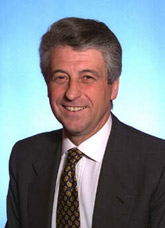Giovanni Rivera | |||||||||||||||||||||||||||||||||||||||||||||||||||||||||||||
|---|---|---|---|---|---|---|---|---|---|---|---|---|---|---|---|---|---|---|---|---|---|---|---|---|---|---|---|---|---|---|---|---|---|---|---|---|---|---|---|---|---|---|---|---|---|---|---|---|---|---|---|---|---|---|---|---|---|---|---|---|---|
 Official portrait, 1996 | |||||||||||||||||||||||||||||||||||||||||||||||||||||||||||||
| Member of European Parliament | |||||||||||||||||||||||||||||||||||||||||||||||||||||||||||||
| In office 25 May 2005 – 13 July 2009 | |||||||||||||||||||||||||||||||||||||||||||||||||||||||||||||
| Constituency | North-West Italy | ||||||||||||||||||||||||||||||||||||||||||||||||||||||||||||
| Member of the Chamber of Deputies | |||||||||||||||||||||||||||||||||||||||||||||||||||||||||||||
| In office 2 July 1987 – 29 May 2001 | |||||||||||||||||||||||||||||||||||||||||||||||||||||||||||||
| Constituency | Milan | ||||||||||||||||||||||||||||||||||||||||||||||||||||||||||||
| Personal details | |||||||||||||||||||||||||||||||||||||||||||||||||||||||||||||
| Born | 18 August 1943[1][2] Alessandria, Italy[1][2] | ||||||||||||||||||||||||||||||||||||||||||||||||||||||||||||
| Political party | CD (2013) DL (2002–2007) Dem (1999–2002) Segni Pact (1994–1996) DC (1987–1994) | ||||||||||||||||||||||||||||||||||||||||||||||||||||||||||||
| Height | 1.75 m (5 ft 9 in)[3] | ||||||||||||||||||||||||||||||||||||||||||||||||||||||||||||
| Occupation |
| ||||||||||||||||||||||||||||||||||||||||||||||||||||||||||||
| |||||||||||||||||||||||||||||||||||||||||||||||||||||||||||||
Giovanni "Gianni" Rivera (Italian pronunciation: [ˈdʒanni riˈvɛːra]; born 18 August 1943) is an Italian politician and former footballer who played as an attacking midfielder.
Dubbed Italy's "Golden Boy" by the media, he played the majority of his club career with Italian side AC Milan, after beginning his career with hometown club Alessandria in 1959. After joining Milan in 1960, he enjoyed a highly successful career in domestic and European football, winning three Serie A titles and two European Cups, among several other trophies, and also serving as the team's captain for twelve seasons.
At international level, Rivera represented Italy national team 60 times between 1962 and 1974, scoring 14 goals, and took part at four World Cups (1962, 1966, 1970, and 1974). Rivera is widely remembered for scoring the decisive goal in Italy's 4–3 extra-time win over West Germany in the semi-final of the 1970 World Cup, leading the team to final, only to suffer a 4–1 defeat against Brazil, however. Rivera was also a member of the first Italian side ever to win the European Football Championship in 1968, on home soil, and represented Italy at the 1960 Summer Olympics in Rome, helping the team to a fourth-place finish.[6]
Rivera was an elegant, efficient, and creative offensive playmaker, with an eye for goal, who possessed excellent vision and technical ability, and who was highly regarded for his footballing intelligence, leadership, correct behaviour, and class.[7] He is widely considered to be one of the best passers and most talented offensive playmakers of all time, due to his passing accuracy and his adeptness at providing assists.[8][9][10] Regarded as one of the best players of his generation, one of the greatest Italian footballers of all time,[11] and by some as Italy's greatest player ever,[12][13][14] he was awarded the Ballon d'Or in 1969, and placed 19th in IFFHS's election for the World Player of the 20th Century.[15] In 2015, he became the first Italian footballer out of 100 athletes to be inducted into Italy's sports Walk of Fame.[16] In 2004, Pelé chose Rivera as part of the FIFA 100 greatest living footballers,[17] and he placed 35th in the UEFA Golden Jubilee Poll.[18]
After retiring from football in 1979, Rivera became Milan's vice-president and later went into politics in 1987. In 2013, he was appointed as President of the educational youth sector for the Italy national team by the FIGC, along with Roberto Baggio and Arrigo Sacchi, under head coach Cesare Prandelli.[19][20][21]
- ^ a b c Cite error: The named reference
magliarossonera.itwas invoked but never defined (see the help page). - ^ a b c d Cite error: The named reference
Milan and Italy's golden boy: Gianni Riverawas invoked but never defined (see the help page). - ^ Cite error: The named reference
tuttocalciatoriwas invoked but never defined (see the help page). - ^ Cite error: The named reference
FIGC Profilowas invoked but never defined (see the help page). - ^ Gianni Rivera at National-Football-Teams.com
- ^ "Gianni Rivera". Olympedia. Retrieved 10 December 2021.
- ^ "Legend of Calcio: Gianni Rivera". forzaitalianfootball.com. 14 October 2011. Retrieved 2 November 2014.
- ^ "Gianni Rivera" (in Italian). Il Corriere della Sera. Archived from the original on 8 October 2014. Retrieved 29 September 2014.
- ^ "Gianni Rivera: La leggenda del Golden Boy" (in Italian). Storie di Calcio. Archived from the original on 3 April 2014. Retrieved 29 September 2014.
- ^ Max Towle (9 May 2013). "25 Most Skilled Passers in World Football History". bleacherreport.com. Retrieved 10 October 2018.
- ^ "Baggio, Sacchi e Rivera Figc ufficializza le nomine" (in Italian). Il Corriere dello Sport. 4 August 2010. Archived from the original on 23 September 2015. Retrieved 26 August 2015.
- ^ Marcelo Leme de Arruda (21 January 2000). "IFFHS' Players and Keepers of the Century for many countries". Rec.Sport.Soccer Statistics Foundation. Retrieved 26 August 2015.
- ^ Manlio Gasparotto (15 August 2015). "La Gazzetta dello Sport vota Rivera: è il miglior calciatore italiano di tutti i tempi" (in Italian). La Gazzetta dello Sport. Retrieved 26 August 2015.
- ^ "Nicolè, il bel centrattacco che pesava troppo: "Il calcio? Dimenticato"" (in Italian). La Repubblica. 31 March 2014. Retrieved 6 March 2017.
- ^ Karel Stokkermans (30 January 2000). "IFFHS' Century Elections: World – Player of the Century". Rec.Sport.Soccer Statistics Foundation. Archived from the original on 3 March 2009. Retrieved 26 August 2015.
- ^ "Inaugurata la Walk of Fame: 100 targhe per celebrare le leggende dello sport italiano" (in Italian). Coni. 7 May 2015. Retrieved 26 August 2015.
- ^ "Pele's list of the greatest". BBC Sport. 4 March 2004. Retrieved 15 June 2013.
- ^ Erik Garin; Rui Silva (21 December 2006). "The UEFA Golden Jubilee Poll". Rec.Sport.Soccer Statistics Foundation. Retrieved 26 August 2015.
- ^ "Serie a News - the biggest Italian football news site". Football Italia. Retrieved 31 December 2013.[permanent dead link]
- ^ David Swan (29 January 2013). "Roberto Baggio's ignored vision". Football Italia. Retrieved 19 September 2018.
- ^ "Prandelli: "we have to work on playing intensity for european competitions"". FIGC. 15 April 2013. Archived from the original on 19 September 2018. Retrieved 19 September 2018.